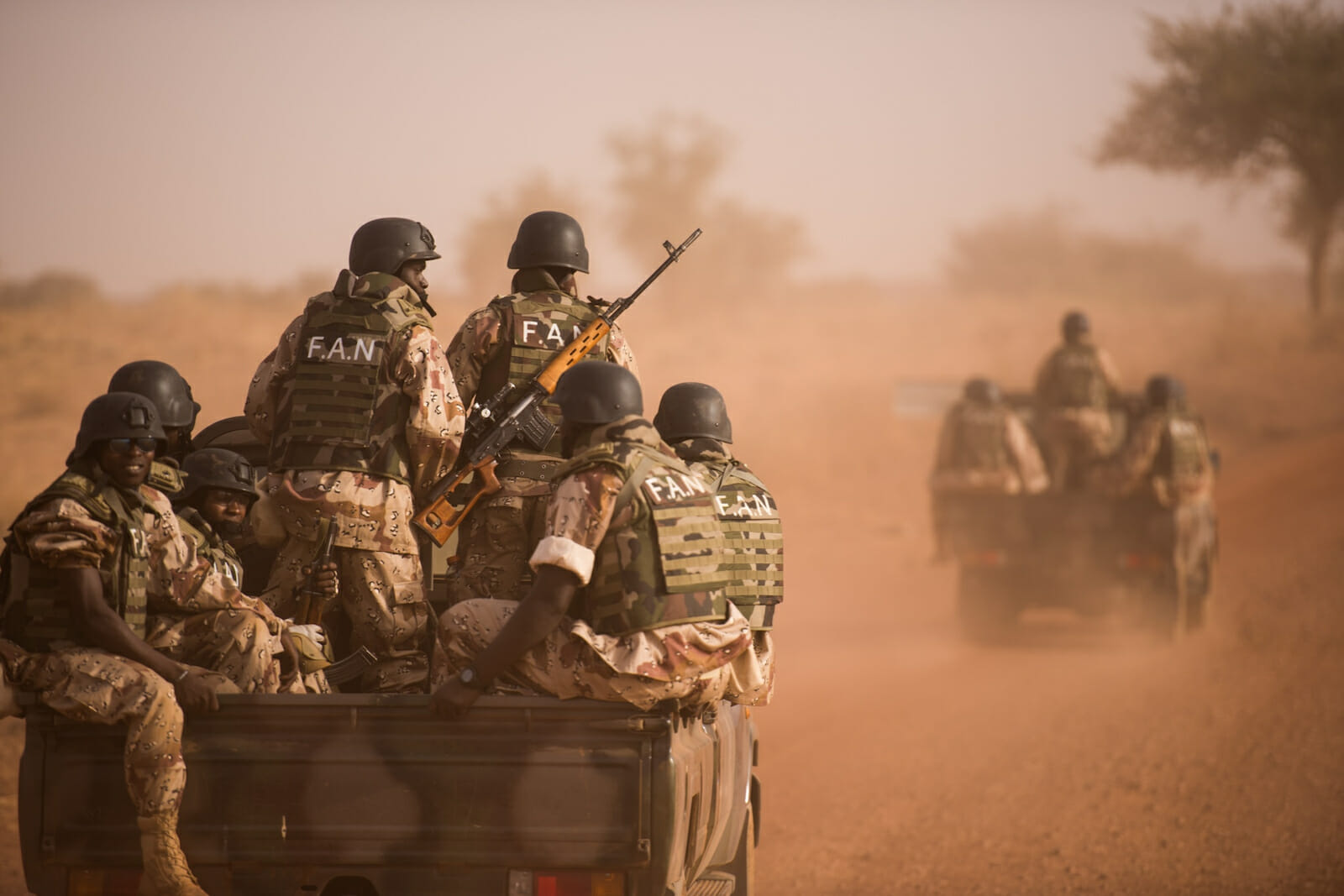Yacqub Ismail
 While there have been reports of a possible U.S. drawdown of forces in Africa as part of Defense Secretary Mark Esper’s review of U.S. force posture around the globe, the top U.S. general in Africa, General Stephen J. Townsend, presented his assessment to the U.S. Senate that: “A secure and stable Africa is an enduring American interest.”
While there have been reports of a possible U.S. drawdown of forces in Africa as part of Defense Secretary Mark Esper’s review of U.S. force posture around the globe, the top U.S. general in Africa, General Stephen J. Townsend, presented his assessment to the U.S. Senate that: “A secure and stable Africa is an enduring American interest.”
In the 2018 U.S. National Defense Strategy, which serves as a guidance for the U.S. Department of Defense, the U.S. government prioritized addressing security challenges from China, Russia, Iran, and North Korea as well as violent extremist groups. AFRICOM’s new strategic approach to secure its interests on the continent are guided by the following: partner for success; compete to win; and, maintain pressure on non-state actors.
In AFRICOM’s area of responsibility, according to General Stephen Townsend, both China and Russia “recognized the strategic and economic importance” of the African continent and to address that, both countries are attempting to “expand their influence across the continent,” while violent extremist networks are “expanding in Africa at a rapid pace.” With China establishing its first military base overseas in Djibouti, just miles away from the largest U.S. military base on the continent, Camp Lemonnier, along with major investments in key infrastructures like seaports and airports that could be leveraged to “increase China’s geopolitical influence” throughout Africa.
Russia, on the other hand, uses a different strategy to leverage its influence, through arms sales as well as deploying private military companies (PMCs). In particular, the now-famous Wagner Group recently downed a U.S. drone aircraft in Libya. Russian PMCs have also been operating in other parts of Africa to combat the growing threat from ISIS in Mozambique, to train local forces in the Central African Republic, but it also agreed with Eritrea last year to a naval logistics center on the Red Sea.
General Townsend indicated that both China and Russia are “in a position of advantage” in both Central and Southern Africa, where both countries have heavily invested both economically and strategically. Both Russia and China along with South Africa conducted naval exercises last year near Cape Town with a Chinese guided-missile frigate Weifang as well as a Russian missile cruiser Marshal Ustinov, which indicates the growing desire of both Beijing and Moscow to augment their presence on the continent.
As the Pentagon is reassessing its force posture on the continent, major concerns have been raised about the possibility of a U.S. drawdown in the region, and how it could affect counterterrorism efforts in the region, in particular in the Sahel, where France is leading a multi-year counterterrorism campaign against multiple extremist organizations. U.S. assistance in areas like airlifting, air refueling for French aircraft, intelligence sharing, as well as training and assisting local forces serves a critical role for those operations, and a drawdown of U.S. forces is unwelcome, due to its impact on the effectiveness of those counterterrorism efforts.
France’s Minister of Armed Forces, Florence Parly, has already met with Secretary Esper and warned against a reduction of U.S. forces, which “would severely limit our effectiveness in our operations against terrorists.” Esper has hailed France’s position as a “great leader in the Sahel,” but pushed for more European assistance “that could offset whatever changes we make as we consider next steps in Africa.” But as General Townsend stated, the U.S. assistance of the French forces in the Sahel are both areas that other European countries could provide in the absence of U.S. presence, like airlifting or air refueling, but he indicated areas that European assistance will be limited like intelligence, reconnaissance, and surveillance.
Currently, France has over 4,000 troops deployed in the region as part of Operation Barkhane, focused on counterinsurgency in countries like Mali, Burkina Faso and Niger with American assistance, but senators like Jim Inhofe who chairs the powerful Armed Services Committee already called a potential drawdown “short-sighted” and harmful to U.S. security interests and other Republicans have already aired their protest against troop cuts in Africa. But so do Democrats. Senator Jack Reed, who serves as a ranking member on the Senate Armed Services Committee, called it “strategically unwise” to disengage from Africa.
In East Africa, a region that hosts several U.S. military bases, a Kenyan naval base that hosts American troops, was recently attacked by Al Shabaab, a terrorist organization that is based in Somalia, and is viewed by AFRICOM as “the most dangerous” threat to American interests in the region. But there are other potential security challenges in the region that have not been addressed by General Townsend’s testimony, including the inter-state competition in the region by several middle-powers from the Middle East. The likes of Qatar, Turkey, the United Arab Emirates, and others, could further destabilize the region, especially in countries where government institutions are fragile like in Somalia, if their strategic interests collide.
In general, the security assessment of AFRICOM, especially threats from non-state actors along with the growing influence of China, is quite challenging for the United States. The U.S. needs a strategy that includes economic and political collaboration while maintaining close cooperation on security threats posed by terrorist groups. A new free trade agreement with Kenya expected to be announced soon could be a good start for a new strategy that competes with China, not only through military means, but also economic means.
No comments:
Post a Comment